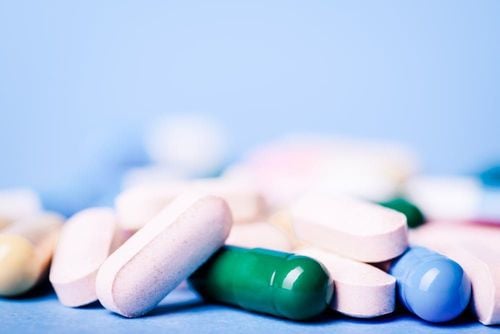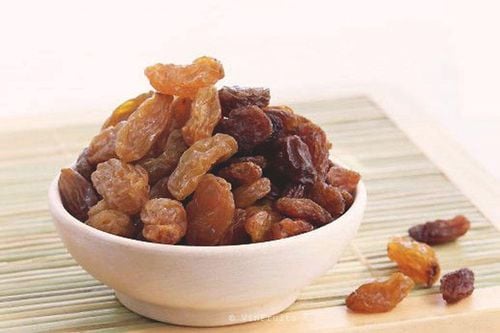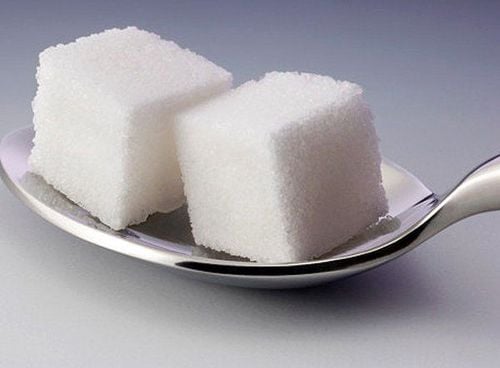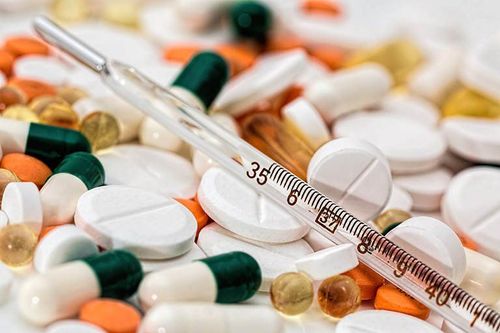This is an automatically translated article.
Raisins are high in fiber, vitamins, minerals, energy and electrolytes, and are known to be a healthier alternative to sugary candy. So eating raisins has a lot of sugar, has diabetes? And is eating raisins fat? Here's what you need to know about the nutritional benefits of raisins.
Raisins have a lot of health benefits such as rich in fiber good for digestion; prevent gastric acid; prevent anemia and insomnia ; promote oral health; rich in antioxidants; promote bone health; increased fertility; improve skin health; strengthens the health of the hair; regulate blood pressure; increased energy; improve liver - kidney health; and can manage diabetes... With so many benefits that raisins bring, surely many people love and want to add raisins to their daily dishes. But many people are also concerned about the following.
1. Do raisins have sugar?
A small cup of raisins has about 434 calories and 94 grams of sugar. The large sugar content in raisins makes many people, especially diabetics, concerned about whether they should eat raisins or not. The answer is: Raisins are, in and of themselves, a fruit, just like any other fruit it includes natural sugars. So when you eat too much raisins will most likely cause hyperglycemia, as long as you know the right amount, even a diabetic can still enjoy raisins every day.
Remember that fruit, although healthy, contains carbohydrates. Even if you're eating fruit as a snack, you need to count it as part of your meal to make sure you're not overeating carbohydrates. Raisins can be added to regular yogurt, cereal, granola, sugar mixes or baked goods to not only enhance their flavor but also add an extra nutritional element to them.
Eating raisins can also help control blood sugar levels after meals.
A 2015 study on the link between raisins and blood sugar showed that people who ate raisins compared to other snacks experienced a 23% reduction in sugar levels after a meal. These people also experienced a 19 percent reduction in fasting sugar levels and a significant reduction in systolic blood pressure. Raisins may also help regulate the release of leptin and ghrelin, which are hormones responsible for telling the body when it's hungry or full - another key in preventing a spike in blood sugar. Therefore, by keeping these hormones in check, people who eat raisins can improve their chances of maintaining a healthy diet and preventing overeating.
In another US study, researchers evaluated 10 healthy participants - four men and six women - to see how raisins affected blood sugar control.
Participants consumed four breakfasts over a period of 2 to 8 weeks. The researchers monitored their sugar and insulin levels for a period of 2 hours after each meal. They ate two breakfasts of white bread and two breakfasts of raisins.
The researchers found that after eating raisins, the participants had significantly lower responses to glucose and insulin levels than after eating white bread. These findings reinforce the conclusion that raisins can have a positive effect on blood sugar.
The glycemic index is basically a scale that ranks carbohydrates according to how quickly they raise blood sugar. In people with diabetes, consuming foods with a low or moderate glycemic index can help control their blood sugar and ultimately help manage their diabetes. And the good news is that raisins are in the mid-fructose group.
Even the University of Michigan Comprehensive Diabetes Center recommends that when your blood sugar is low, you should eat something sweet, such as raisins. However, do not overdo it. Two tablespoons of raisins provide about 15 grams of carbs and may be enough to relieve symptoms of low blood sugar.
The key thing to remember is that no matter how much you love raisins, remember to only consume them in moderation, do not eat too much. Managing your blood sugar is important to avoid diabetes complications.
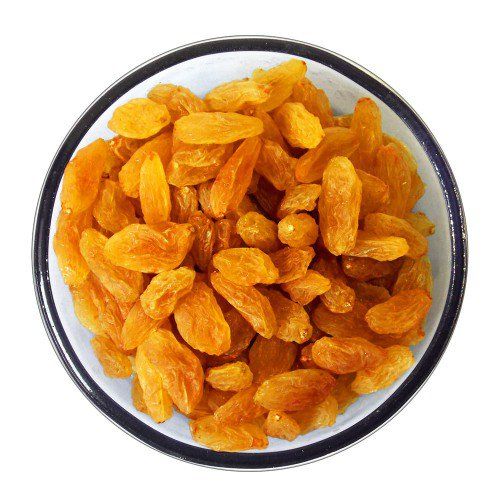
Một cốc nhỏ nho khô có khoảng 434 calo và 94 gam đường
2. Is eating raisins fat?
Sipping some raisins between coffee breaks, or as you relax after dinner is a perfect choice when you want a sweet treat to relieve stress.
Although raisins are high in calories, they will not automatically lead to fat gain. However, if you eat this dried fruit in excess, it can cause your body to have an excess of calories, in which case you will gain weight.
Fat gain depends on the relationship between the calories your body takes in and the calories burned during exercise and other daily activities. No food will automatically make you fat, but if the high calorie value of a food that increases your calorie intake for the day exceeds your calorie burn, the result is weight gain. Because 0.45kg of fat is made up of 3,500 calories, you won't see an instant fat gain. For example, if your calorie intake exceeds your calorie burn by 100 calories per day, it would take 35 days to gain 0.45kg of fat.
Eating a low-calorie diet, combined with exercise, can keep your body in calorie balance or in a calorie deficit, leading to weight maintenance or weight loss. One serving of raisins doesn't take long to finish, but its calories can be an issue. For example, a 42.5-gram can of raisins has 129 calories. If your recommended daily calorie intake is 1,800 calories and you lead a sedentary lifestyle, the 100+ extra calories in a box of raisins will make up a significant portion of your calorie allotment. In this case, raisins may play some role in making you fat, especially if you eat a lot of servings.
If you love the taste of raisins and want to include them in your diet, give yourself peace of mind by exercising regularly. Physical activity should be part of your day, but you can offset the 100 calories you consume from eating a small box of raisins by burning at least 100 calories during physical activity. Doing so will not take long; A 30-minute walk for a 70kg person will more than make up for the calories of raisins.
Please dial HOTLINE for more information or register for an appointment HERE. Download MyVinmec app to make appointments faster and to manage your bookings easily.
References: healthline.com, organicfacts.net, livestrong.com, healthyeating.sfgate.com




